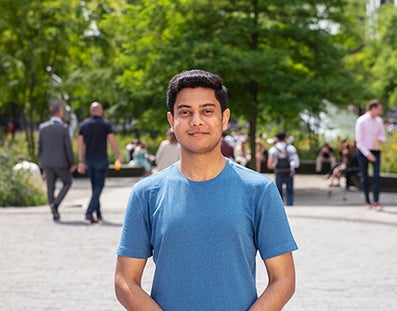You are curious by nature and interested in answers to fundamental questions such as these. The Bachelor's programme of Philosophy is a broad, classical programme in philosophy. The programme is bilingual and has an English and a Dutch track. You learn to think independently and critically about philosophy's fundamental questions and the relationship between philosophy, science, and society. Gain insight into historical and systematic philosophy, and understand classical philosophical skills such as argumentation, analysis and interpretation, and general skills enabling you to present thoughts clearly and convincingly.
This programme covers courses in practical philosophy, theoretical philosophy and the history of philosophy. In addition, there are courses aimed at acquiring scientific and philosophical skills. In the first year, you follow introductory courses; in the second year, in-depth courses and electives. Finally, in the third year, students are able to follow a minor, optional courses, and write a final bachelor's thesis.
Philosophy as second study programme
If Philosophy is your second study programme, you will be able to combine an academic bachelor with courses from the regular Philosophy programme. As a result, you connect your professional knowledge with philosophical skills and develop your analytical skills. You are eligible for exemptions (via the Examination Board), and upon completion of the programme, you will receive a full-fledged Philosophy diploma.
If you would prefer to follow this programme in Dutch, see Filosofie.
The start date of this programme is September 1st.

